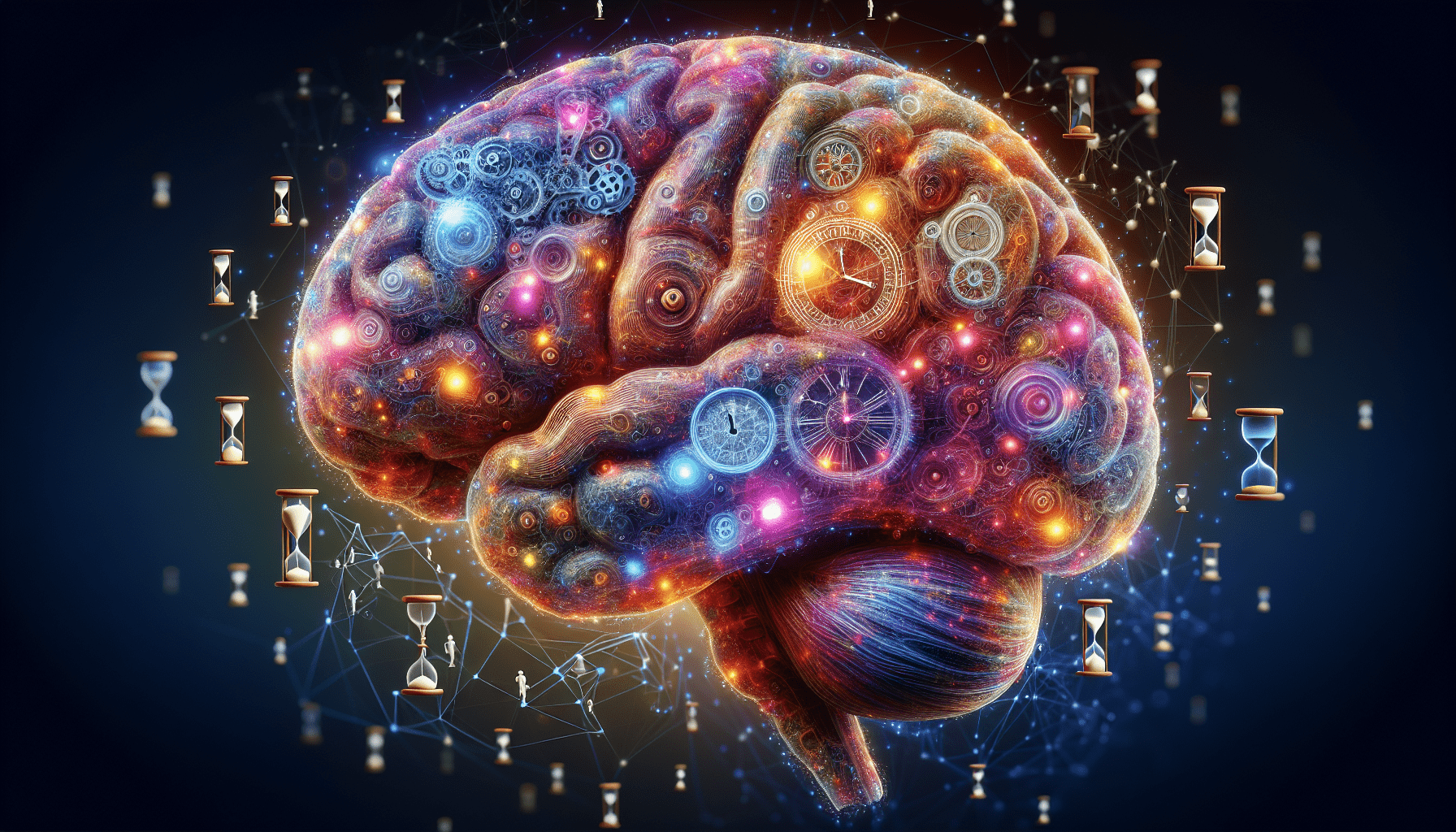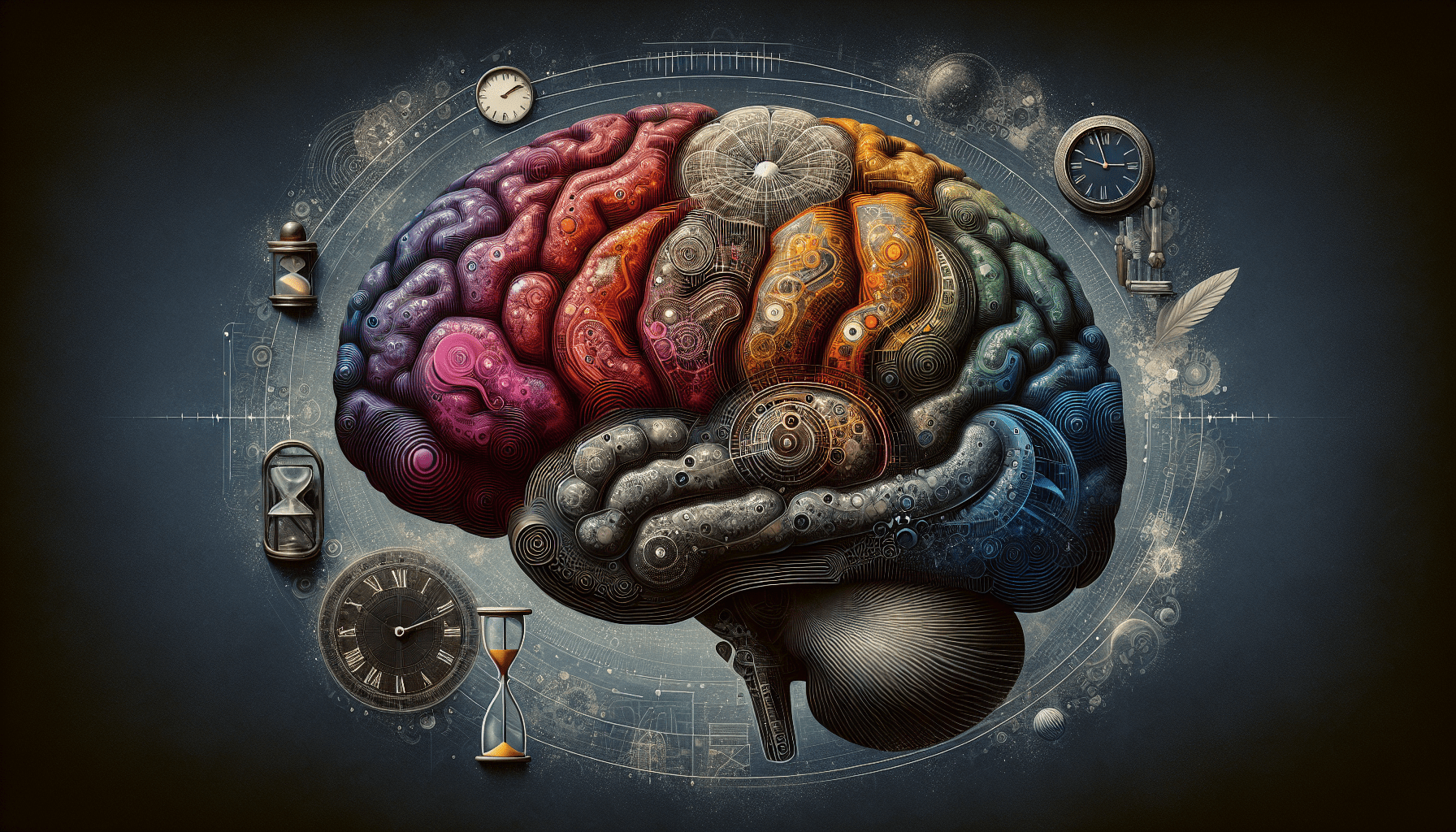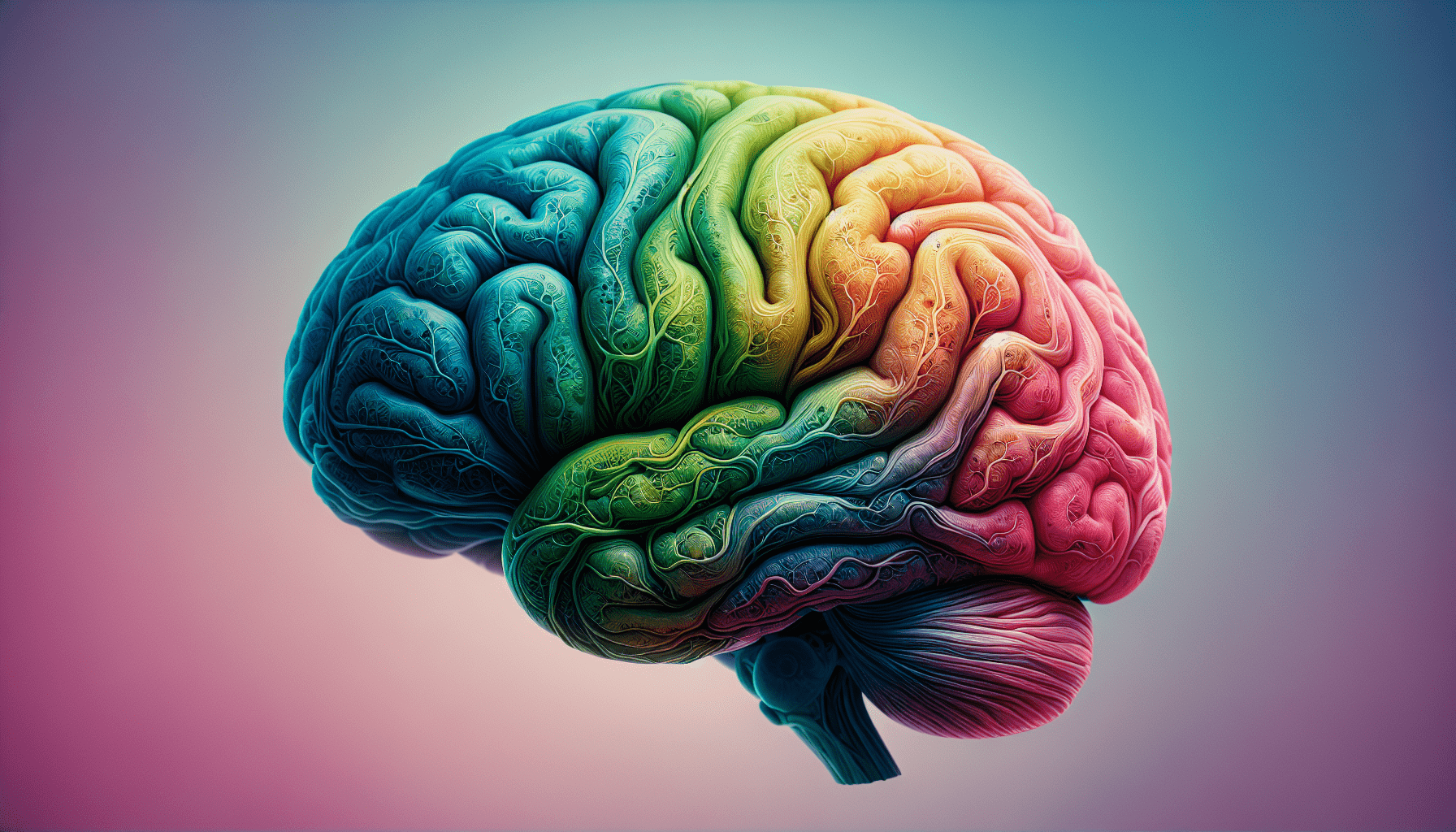The Impact of Age on Memory” is an insightful exploration into how the aging process influences your cognitive abilities, specifically focusing on your memory. As you grow older, you may notice subtle changes in how easily you recall names, dates, or events. This article delves into the nuances of how memory function can shift with age, highlighting both the challenges and compensatory strategies that can help you maintain mental sharpness. By understanding these changes, you can better navigate the complexities of aging and feel more confident in your daily life. Have you ever wondered how age affects your memory? It's a fascinating subject that affects everyone at some point in their lives. As you age, your memory can change in a variety of ways. While some people might become a bit forgetful, others might hold onto their sharp recollection skills well into old age. In this friendly guide, we'll explore how aging impacts memory, diving deep into changes to different types of memory, cognitive processes, and the science behind these shifts.
Understanding Memory and Aging
To truly grasp how age affects memory, it's essential to understand the types of memory and how they work. Memory is generally broken down into three main types: sensory memory, short-term memory, and long-term memory. Each of these has its unique characteristics and roles.
Sensory Memory
Sensory memory captures information from your senses—what you see, hear, or feel. This happens almost instantaneously and lasts for just a few seconds. For example, when you see a flash of lightning, it quickly gets stored in your sensory memory before it fades away.
Short-Term Memory
Short-term memory, also known as working memory, holds and manipulates information for a short duration, typically 15-30 seconds. This is the type of memory you use to remember a phone number long enough to dial it.
Long-Term Memory
Long-term memory stores information over much longer periods, from hours to a lifetime. This type includes everything from the names of your childhood friends to facts you've learned in school.
How Age Affects Sensory Memory
Sensory memory is the first step in the memory process, but how does it hold its own as you age? Generally, sensory memory remains relatively stable as you grow older. However, the quality of sensory input can decline due to age-related factors.
Changes in Senses
As you age, your senses might not be as sharp as they once were. Vision can blur, hearing might decline, and the sense of touch can become less sensitive. These sensory declines can indirectly affect your sensory memory.
Visual Decline
When your vision starts to decline, it can be more challenging to take in visual information quickly and efficiently. This might mean missing small details in a room or not quickly recognizing someone's face.
Hearing Loss
Hearing loss is another common issue that can impact sensory memory. If you don't hear something clearly, your brain doesn't get a chance to store that information, leading to a gap in your sensory memory.
Compensation Mechanisms
Despite these declines, your brain often finds ways to compensate. For example, it might rely more heavily on other senses that remain stronger or use context clues to fill in gaps. So while sensory memory might be somewhat affected, you're not entirely at its mercy.

Impact on Short-Term Memory
Short-term memory, the kind you use to remember things for just a few seconds or minutes, often sees a more noticeable decline with age. This can be due to various factors, including reduced speed of cognitive processing and increased difficulty in multitasking.
Cognitive Slowing
One key reason for short-term memory decline is cognitive slowing. This means your brain takes a bit longer to process information. For example, you might need a few extra moments to recall a name while having a conversation.
Multitasking Challenges
Aging can also make multitasking more challenging, affecting your ability to hold onto short-term memories. If you’re trying to do several things at once, you might find it harder to remember each task because your brain has to divide its attention.
Let's look at a simple table to better illustrate these changes:
| Factor | Impact on Short-Term Memory |
|---|---|
| Cognitive Slowing | Slower information processing |
| Multitasking | Harder to retain multiple items |
Strategies to Improve Short-Term Memory
Even though there can be a decline, various strategies can help you maintain or even improve your short-term memory. For instance, practicing mindfulness can enhance your focus, which in turn helps with memory retention. Additionally, writing things down or using mnemonic devices can serve as practical aids.
How Long-Term Memory Changes with Age
Long-term memory, which stores everything from your earliest recollections to what you had for breakfast last week, experiences more nuanced changes with age. Some aspects of long-term memory can remain stable, while others might face decline.
Episodic Memory
Episodic memory, the aspect of long-term memory that deals with personal experiences, often declines with age. You might find it harder to recall details of specific events, such as conversations or activities from years ago.
Semantic Memory
Semantic memory, on the other hand, tends to remain more stable. This is the memory you use for facts and general knowledge, such as recognizing the capital of a country or understanding the meaning of words. Older adults often perform just as well as younger people in this area.
Procedural Memory
Procedural memory involves how to do things, like riding a bike or typing on a keyboard. This type of memory generally holds up well with age, allowing you to maintain skills and habits formed over the years.
Factors Influencing Long-Term Memory Decline
Several factors can influence the decline in long-term memory, including overall health, lifestyle choices, and genetic predisposition. Chronic conditions like diabetes or hypertension can have adverse effects on cognitive functions, including memory.
Here’s a breakdown in a simple table format:
| Type of Memory | Change with Age |
|---|---|
| Episodic | Declines |
| Semantic | Generally stable |
| Procedural | Generally stable |
Enhancing Long-Term Memory
While some decline in long-term memory is natural, certain activities can help. Engaging in regular physical exercise, maintaining social interactions, and keeping your mind active with puzzles or learning new skills can contribute to better long-term memory.
Neurological Basis for Memory Decline
Understanding how your brain changes can shed light on why memory declines with age. The brain undergoes several structural and functional changes as you grow older.
Brain Volume Reduction
One significant change is the reduction in brain volume. The hippocampus, crucial for forming new memories, tends to shrink with age. This reduction can lead to challenges in storing and retrieving memories.
Neural Connections
Another aspect is the loss of neural connections, or synapses. These connections are vital for communication between neurons. As you age, the number of these synapses tends to decrease, affecting the brain’s efficiency in processing and storing information.
Chemical Changes
Neurotransmitters, the chemicals that relay signals between neurons, also play a role in memory. With age, the levels of these chemicals can decline, affecting your brain’s ability to communicate internally and influencing your memory.
The Role of Neuroplasticity
Despite these changes, your brain retains a level of plasticity, or the ability to rewire and form new connections. Engaging in activities that challenge your brain can promote neuroplasticity and help maintain cognitive functions.
Impact of Lifestyle and Health
Your lifestyle and health choices can significantly influence how well your memory functions as you age. Let’s explore some crucial aspects like diet, exercise, and mental health.
Diet and Nutrition
A balanced diet can go a long way in supporting cognitive functions. Foods rich in antioxidants, such as fruits and vegetables, can combat oxidative stress, a factor that contributes to aging. Omega-3 fatty acids found in fish are also known to support brain health.
Exercise
Physical exercise is another critical factor. Regular exercise helps maintain blood flow to the brain and encourages the development of new neural connections. Studies have shown that people who stay physically active tend to have better memory and cognitive function as they age.
Mental Health
Mental health is closely tied to cognitive health. Depression, anxiety, and chronic stress can all negatively affect memory. Managing stress through mindfulness, meditation, or counseling can provide cognitive benefits.
Sleep
Never underestimate the power of a good night’s sleep. Poor sleep quality can lead to memory lapses and cognitive decline. Aim for 7-9 hours of sleep each night to help consolidate memories and refresh your mind.
Here’s a table summarizing these factors:
| Factor | Impact on Memory |
|---|---|
| Diet and Nutrition | Supports brain health |
| Exercise | Encourages neural connections |
| Mental Health | Mitigates cognitive decline |
| Sleep | Aids in memory consolidation |
The Role of Genetic Factors
Genetics can also play a role in how your memory changes as you age. Some people are genetically predisposed to better or worse cognitive outcomes. While you can't change your genes, understanding their role can give you insights into your memory and what to expect.
Genetic Risk Factors
Certain genetic markers have been linked to an increased risk of diseases that affect memory, such as Alzheimer's disease. If you have a family history of these conditions, you may be more likely to experience significant memory decline.
Family History
Even without specific genetic markers, having a family history of memory issues can indicate a higher risk. Knowing this can help you take proactive steps to maintain your cognitive health.
Mitigating Genetic Risks
While you can't alter your genetic makeup, lifestyle choices can help mitigate some of the risks. For example, engaging in intellectually stimulating activities, maintaining a healthy lifestyle, and managing stress can all help counteract genetic predispositions to memory decline.
Technological Aids and Cognitive Tools
In today's world, technology offers various aids and tools to help you manage and improve your memory. From apps that remind you of tasks to brain-training games, there are numerous resources at your disposal.
Memory Apps
There are various smartphone apps designed to help you remember tasks, appointments, and other important information. These apps can be particularly helpful if you find yourself becoming more forgetful.
Brain-Training Games
Games that challenge your cognitive abilities can be both fun and beneficial. They often involve puzzles, memory exercises, and brain teasers that can help keep your mind sharp.
Virtual Assistants
Virtual assistants like Siri or Alexa can also serve as memory aids. You can set reminders, ask for information, or even get help with daily tasks to reduce the cognitive load on your memory.
Wearable Devices
Wearable devices like smartwatches offer additional support. They can remind you to stay active, take your medications, or perform other tasks that you might otherwise forget.

Practical Tips for Enhancing Memory
Finally, let’s dive into some practical tips that can help you enhance your memory and keep it sharp as you age.
Stay Physically Active
Regular physical activity helps improve blood flow to the brain and encourages the growth of new neurons. Even walking for 30 minutes a day can make a difference.
Keep Mentally Engaged
Engage in activities that challenge your brain, such as puzzles, reading, or learning a new skill. These activities promote neuroplasticity and help maintain cognitive health.
Social Interaction
Social interactions are crucial for cognitive health. Engaging with friends and family can provide emotional support and mental stimulation, both of which are beneficial for memory.
Good Nutrition
Eat a balanced diet rich in fruits, vegetables, whole grains, and lean proteins. Foods high in antioxidants and omega-3 fatty acids are particularly beneficial for brain health.
Manage Stress
Stress management techniques like mindfulness, meditation, or even simple hobbies can help reduce stress and its negative impact on memory.
Quality Sleep
Make sleep a priority. Aim for 7-9 hours of restful sleep each night to help your brain consolidate memories and recharge.
Regular Check-Ups
Regular medical check-ups can help you stay on top of your health. Conditions like diabetes, hypertension, and even vitamin deficiencies can affect memory, and early detection can make a big difference.
Use Memory Aids
Don’t hesitate to use tools like calendars, planners, or apps to help you remember important tasks and appointments. There's no shame in using aids to help manage memory.
Conclusion
Aging is a natural part of life, and so are the changes that come with it, including those to your memory. Understanding how age affects memory can help you take proactive steps to mitigate these changes. From engaging in a healthy lifestyle to using technological aids, there are numerous ways to maintain and even improve your memory as you age. Remember, while some decline is inevitable, many strategies and tools are available to help you stay sharp and maintain a high quality of life. So, take control of your cognitive health today, and keep those memories alive and well!




